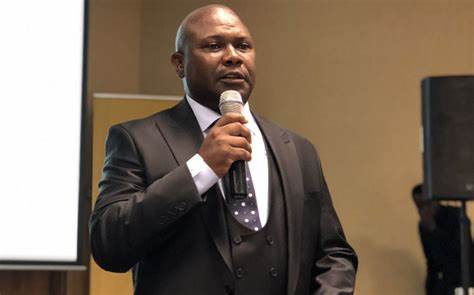The Budget was presented by the Member of Mayoral Committee (MMC) for Finance, Jolidee Matongo during his Budget Speech at the 48th Ordinary Council on Tuesday, as part of the 2021/22 – 2023/24 Medium Term Budget.
It is anchored on the pleas of the residents of Johannesburg on affordability of annual rates and tariffs, acceleration of service delivery, as well as the Growth and Development Strategy (GDS) 2040 vision of spatial redesign and socio-economic development.
Speaking during the Budget Speech, MMC Matongo said: “A difficult balancing act of our Budget has enabled the City to take into account pleas from residents for minimal tariff increases in the finalisation of the proposed rates and tariffs for 2021/22 – amidst the Covid-19 economic impact on the livelihoods of residents.”
He announced that the City managed to keep the new annual tariff increases at the most possible minimal rates as follows:
· Property rates increase by 2%. This is 2% less than the current property rate charge of 4%.
· Water and sanitation up by 6.8%, which is equal to the pass-through costs from Rand Water, and the City continues to provide all residents with free 6kl of water.
· Refuse increases by 4.3%, which is lower than the increase of 5.2% in the current year.
· Electricity tariff increases by 14.59% for 2021/2022. This is below the 15.09% that NERSA granted to ESKOM.
The tariff increases come after the City has already rolled out several relief measures to assist ratepayers who are struggling to pay for their municipal accounts while also extending the benefit period for residents who are on the Expanded Social Package (ESP) support during the hard lockdown.
The relief measures also included the expansion of the pensioner rebates net to benefit for pensioners, and most recently the improved Debt Rehabilitation Programme to also cover more beneficiaries that include churches, non-profit organizations, and small businesses.
MMC Matongo said: “The Budget is also designed to support the Government of Local Unity’s rebuilding agenda to transform Johannesburg into a thriving City post the Covid-19 pandemic – through accelerated service delivery, and also the reintroduction of co-production of municipal services with residents.”
He said: “This is a people-centred Budget, which is committed to a number of infrastructure projects across the City in a bid to revive our local economy and change the face of our communities. It is a Budget set to operationalise a number of community service facilities – including shelters for people, particularly children, affected by gender-based violence and homelessness.”
The Budget’s operational expenditure sits at R65.1 billion – with a capital expenditure of R8.2 billion and a three-year capital budget of R25.5 billion. This will see the City focus on strategic priority infrastructure Turnkey projects in poor areas that include Orange Farm, Ivory Park, and Kliptown.
“These are projects that are central to increasing the City’s economic nodes in-line with our GDS socio-economic and spatial transformation agenda,” Matongo said.
He further described the approved Budget as a balancing act of the interests of the people of Johannesburg, the municipality’s ability to continue delivering basic services and the institution’s financial sustainability.
“The City is faced with multiple challenges of youth unemployment and spatial design concerns that continue to block access to opportunities for underprivileged communities, hence we have had to prioritise investment in poor areas that also include Eldorado Park, Alexandra, as well as Zandspruit and Meriting,” said MMC Matongo.
Meanwhile, (MMC) for Economic Development, Lawrence Khoza, welcomed the allocation of the budget for the Department of Economic Development.
The budget of R195.5 million will assist with the acceleration of revitalisation of industrial parks and Priority Economic Zones (PEZ). The City adopted the Economic Growth Strategy to increase economic growth to 5%, create jobs and to promote spatial transformation.
He added that the Budget will bring services closer to residents with the establishment of Opportunity Centres in areas that have been forgotten by the previous administration like Orange Farm and Ivory Park, and the launch of the Mobile Opportunity Centre.
The department has trained several youths as artisans through the City’s Artisan Development Programme and will launch the Youth Cooperative Development Programme in all regions.
This Budget allows for the opening of the Alexandra-Marlboro Automotive hub, which will be the legacy project of the Government of Local Unity. The hub will see the development of small, medium and micro enterprises (SMMEs) from Alexandra – Marlboro by collaborating with the City’s stakeholders to incubate 17 SMMEs in the automotive sector.
This hub includes a component shop, tyre fitment & alignment, panel beating, auto electrical work and services and maintenance workshops.
MMC Khoza further welcomes the allocation of R45 million towards the re-establishment of the Johannesburg Tourism Company (JTC). Tourism is a major contributor to economic growth and job creation. It has an important role to play in placing the City’s economy on a sustainable inclusive growth trajectory.
“The Budget responds to the needs of our people. The stakes are high. Residents and other stakeholders expect the Budget to address their challenges and we believe it does exactly that,” said MMC Khoza
Image (MMC Finance in Joburg Jolidee Matongo delivered his 2021/22 Budget).

